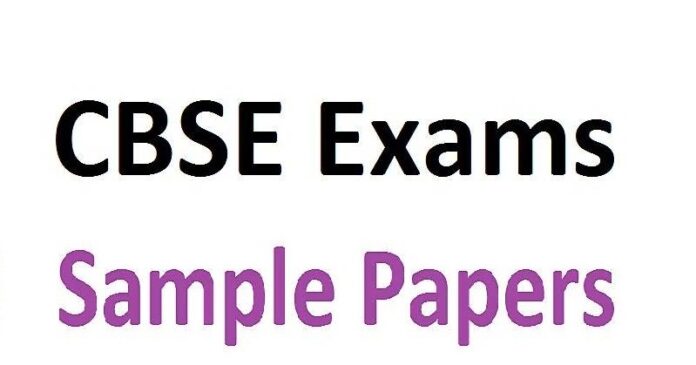
Social science is a field of science concerned with human society’s institutions and functioning, as well as people’s interpersonal connections as members of society. Rather than researching the physical world, social science studies the interactions between persons and societies, as well as the creation and operation of communities.
‘WHY’ Social science?
Social science enlightens pupils about their surroundings and historical events. It is essential to know a worldwide perspective and also for society’s moral advancement. It aids in the development of a man’s social character.
Social science education makes us more effective citizens of a democracy and aids us in solving practical challenges in our everyday lives. It is critical for both communities and businesses and also aids pupils in understanding how various civilizations are handled, structured, and controlled. Social science teaches students about cultural and social ideas, religions, caste, nations, languages, festivals, clothes, and cuisine, among other subjects.
Students learn through these experiences that the society in which they live is multicultural, varied, and interconnected across nations, cultures, and religions. The social sciences help to understand how society works by looking at anything from economic development triggers and unemployment causes to what makes people happy. This data is crucial and may be utilized for a variety of purposes.
It aids in the development of business strategy and government regulations. Learners that thrive in Social Science disciplines often have abilities in evaluating data, identifying connections, comprehending interconnections, critical examination of sources, and generalization of specialized information – all of which are valued in the greater corporate world.
Let’s Now learn various tips and tricks to learn social science
1. Know the syllabus: It is the foremost duty of the child to know about the syllabus that they would cover in 6th After knowing the syllabus, the child will have a structural idea in them regarding how much time shall they devote to all three areas of study in social science that are, history, civics, and geography respectively.
All the further planning and tips and tricks regarding the preparation of the exam start by learning about the syllabus.
2. Develop interest and connect with the subject: To avoid boredom, students should learn about the importance of Social Science, go further into it, and connect with it. Understanding the value of the topic is also necessary for developing interest; this is especially important for students interested in the Civil Service.
3. Make interesting charts and prepare bullet point notes: Students may make learning Social Science more enjoyable and interesting by creating flow charts and posters depicting major events, facts and statistics, crucial dates, terminology, and data, etc. They may practise map topics in their spare time and make chapter-by-chapter bullet point notes to read on the fly.
4. Invent stories to learn history: Historical fiction is a type of literature that can be learned by setting imagined stories or characters. This offers readers a cause to return to a historical fiction novel and makes it more real.
Adding fictitious characters to the mix that complement those based on real individuals may help propel the plot forward, infuse character, and keep it fascinating.
5. Group Study: To learn more effectively, students should try studying in groups. It would not only help students improve their learning experience, but it will also make it more enjoyable for them.
They can talk to their peers, debate topics, and quiz each other. They may also aid their friends by teaching or explaining things to them; this will help kids grasp and remember knowledge better.
6. Solve sample papers: Students have always sought sample papers as the most prized study resource. Anyone that has ever done well in any type of test will tell you that sample papers are the best method to prepare. When you answer a problem from a book, every topic looks to be almost as simple. With this child receives the best practice at the stage of learning, and it also aids pupils in recognising their errors.
For reference children must solve CBSE Sample Paper 1 for Class 6 Social Science.
7. Do not ignore maps and diagrams: Many students neglect maps and diagrams. The one topic that you can count on appearing in your exams is either maps or diagrams. All of the maps and diagrams should be reviewed and practised at least twice or three times.
8. Divide your work across the semester: Children shall create a proper timetable to evenly distribute the work throughout the semester. This will assist children in prioritising the subject and providing a structure to keep track to fulfil exam and class test deadlines. The agenda and master schedule will also assist them in organizing the daily objectives and completing tasks on time.
9. Connect the dots: When it comes to consuming information, learning to build connections pays off. Examine, how the material you’re reading, viewing, or listening to is related to one another when you’re studying. The term used for this type of learning is Contextual learning. Attempt to combine the relevant knowledge onto a single flashcard.
10. Review and test yourself regularly: Reviewing material on a frequent basis is also important for remembering it and acquiring a thorough comprehension of it. Reading through or compressing your notes are instances of reviewing.
Doing practise questions and testing yourself is one of the most effective ways to review. Self-testing is an excellent approach to spend review time since it helps you to identify knowledge gaps. This is a great activity for any class, not just problem-solving ones.
Conclusion
Never undertake social science with the idea that it would be tedious and time-consuming. If you’re interested in learning more about it, it’s a fascinating topic. When correctly followed on a regular basis, these social science preparation tips/strategies tend to be quite efficient.
A degree in the social sciences can help you find work as an economist, survey researcher, as well as a position in law and governmental departments.

